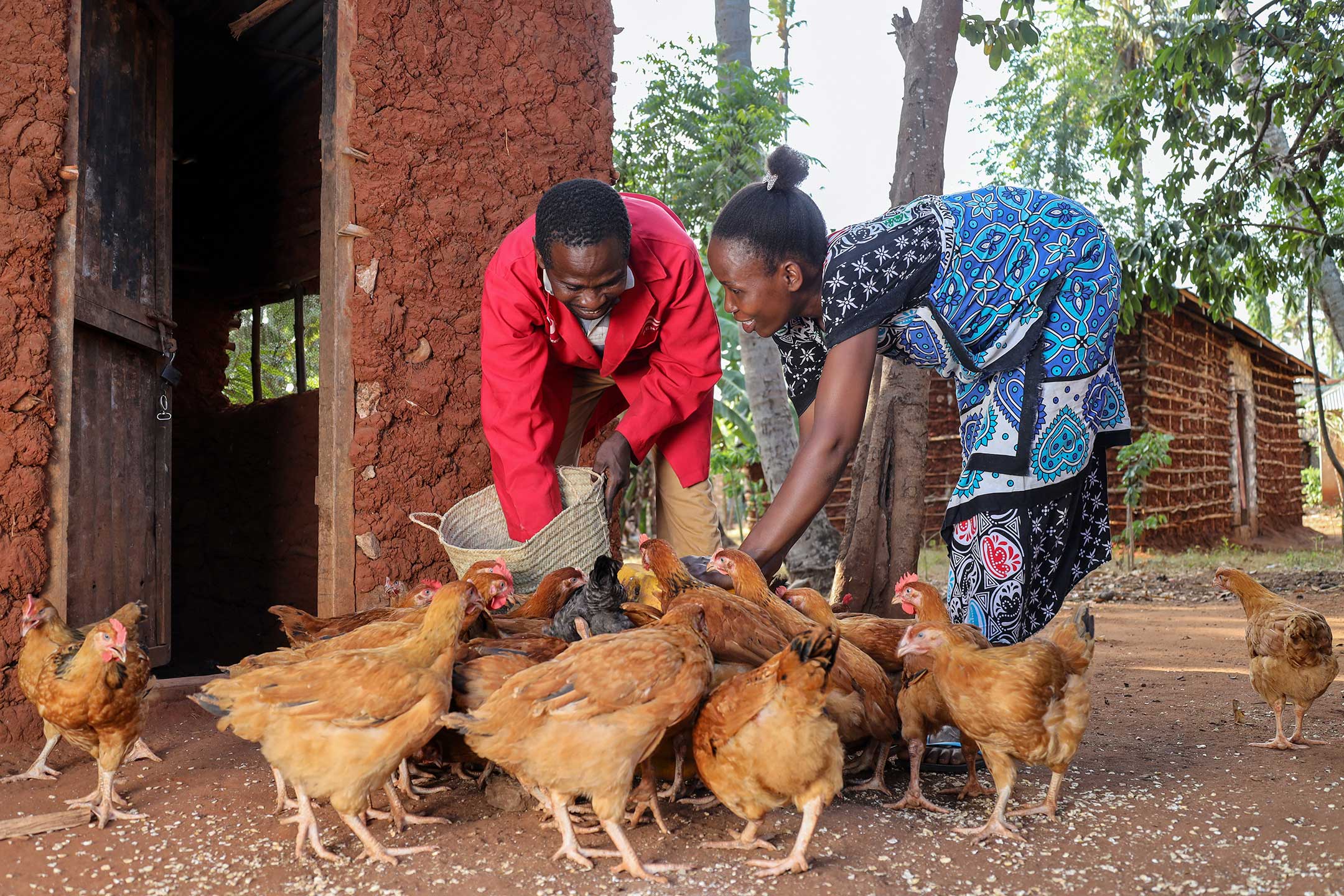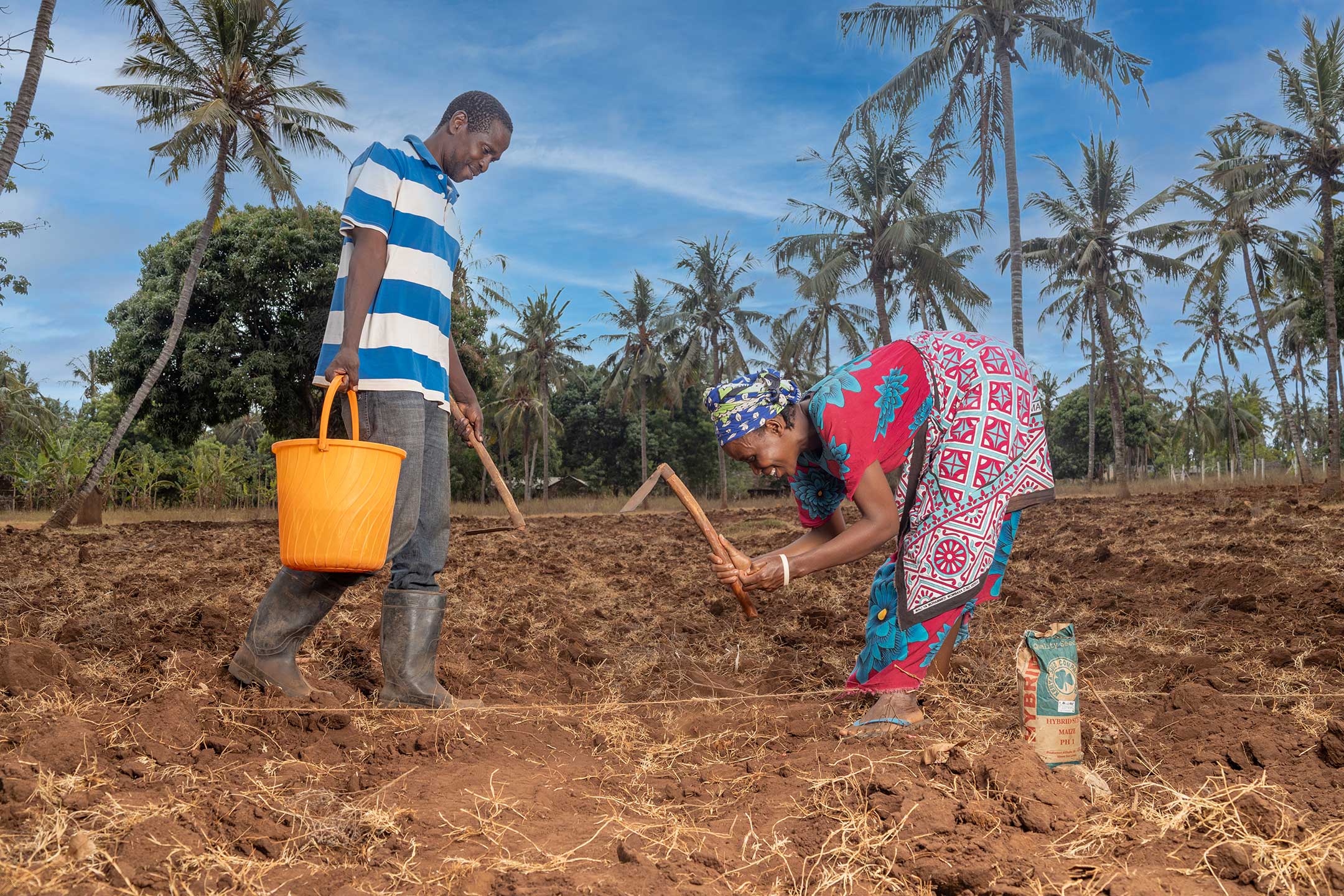Project Details
Subject
Location
Partners
Value Chain
Background
Gender inequality in agrifood systems remains a significant barrier to food security, rural development, economic growth, and environmental sustainability. Although rural women contribute greatly to agriculture, they face challenges in accessing land, inputs, finance, technologies, information, and markets. They also carry a disproportionate burden of unpaid care and domestic work, limiting their opportunities in profitable agribusiness.
The Tushauriane, Tuimarishe Kilimo Biashara project, led by FAO and implemented with CBCC Africa and other partners, addresses both visible and structural drivers of gender inequality in agrifood systems. It combines the Women’s Empowerment and Farmer Business School (WE-FBS) approach with Social and Behaviour Change (SBC) strategies to promote women’s profitable engagement in agribusiness while challenging discriminatory gender norms.

Goal
To promote gender equality and women’s empowerment by enhancing rural women’s access to markets and agribusiness opportunities, while transforming social norms that limit their full participation in agrifood systems.
Target Audience
Rural women and men smallholder farmers, Spouses, household members, and peers, Community leaders and influencers, Extension workers, market actors, and cooperatives, Implementers and policymakers
Implementation
CBCC is leading the design, rollout, and monitoring of the Tushauriane, Tuimarishe Kilimo Biashara SBC campaign to promote gender equality, economic empowerment, and agroecological practices in Kilifi. The campaign, grounded in evidence and community participation, began with formative assessment in March 2025 across four sub-counties. Using Human-Centred Design, this research mapped gender barriers, market challenges, and social norms shaping agribusiness practices.
To effectively reach rural smallholder farmers and their households, the campaign works through 80 Farmer Field Schools engaged in crop production, livestock, apiculture, agroforestry, natural resource management, and climate-smart agriculture.
CBCC developed a comprehensive SBC communication strategy with clear objectives, priority audiences, and key messages. Supporting materials include audio dramas, a Farmer Field School SBC Facilitator’s Guide for structured group discussions, and a Community Booklet for household dialogue. CBCC has trained 10 Master Trainers and 50 facilitators in gender-sensitive facilitation and SBC messaging. The rollout is ongoing, with continuous monitoring to ensure the approach remains responsive and impactful.

Achievements and Results
The Tushauriane, Tuimarishe Kilimo Biashara project aims to drive gender-transformative change in agrifood systems during its one-year implementation period. The SBC campaign seeks to create enabling environments where women can thrive in agribusiness by addressing both structural barriers and harmful social norms. Specifically, it aims to:
- Strengthen community dialogue and critical reflection on gender roles that limit women’s participation in agribusiness.
- Build the capacity of local actors, including extension workers, facilitators, and community leaders, to promote equitable engagement of women and men.
- Enhance visibility of women’s contributions and rights through accessible multimedia content, including audio dramas, jingles, and dialogue tools.
- Promote positive masculinity and shared decision-making within households and communities.
- Develop practical tools and approaches for scaling the model to other counties and contributing to national policy on gender equality in agrifood systems
Conclusion
The Tushauriane, Tuimarishe Kilimo Biashara project is supporting communities in Kilifi to challenge harmful gender norms and build inclusive agrifood systems where women and men can thrive equally. By combining SBC with practical tools for empowerment, the project is creating stronger pathways for rural women to engage in profitable agribusiness. This model offers valuable lessons for scaling gender-transformative approaches and informing national policies that advance equality, economic growth, and sustainable development across Kenya and beyond.
